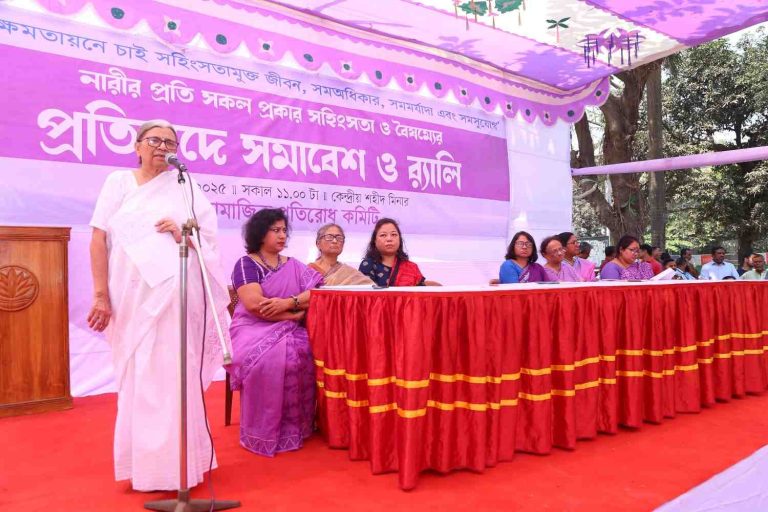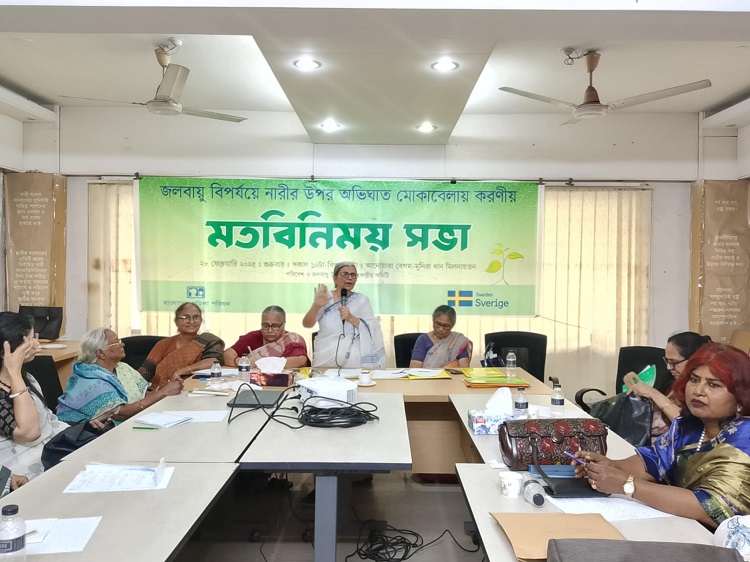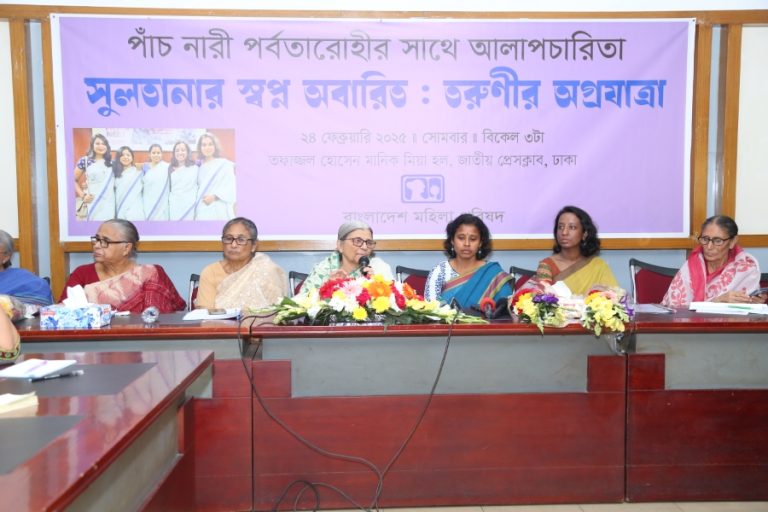Bangladesh Mahila Parishad (BMP) organized a pre-budget discussion meeting with the theme – “Women’s access to information technology and preparation for the Fourth Industrial Revolution” on March 28, 2023, at the Anwara Begum-Munia Khan Auditorium (Sufia Kamal Bhaban, 10/B, Shegunbagicha).
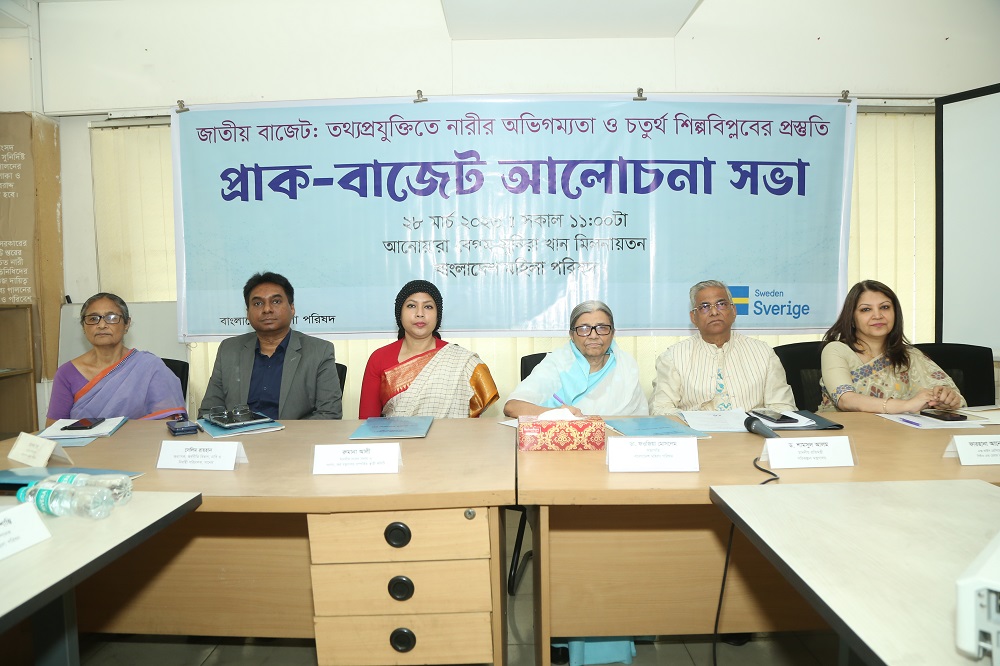
The Honourable State Minister, Dr. Shamsul Alam Ministry of Planning, was welcomed as the chief guest, while, Rumana Ali, member of the Parliamentary Standing Committee, Ministry of Finance; Selim Rayhan, Executive Director of SANEM, and Professor of the Economics Department, University of Dhaka; Farhana Anwara Rahman, former asst. secretary of Basis and CEO and Chair of UY System Limited; were present as special guests. Dr. Fauzia Moslem, the president of Bangladesh Mahila Parishad chaired the meeting.
Shormind Nilormi, Professor of the Economics Department, Jahangirnagar University, and a member of the organization’s central committee presented the keynote paper at the meeting.
Chief Guest, Dr. Shamsul Alam, Honourable State Minister, Ministry of Planning, said that the current Government is active in the economic and political empowerment of women. In general terms, the gender budget was started in 2009 with four ministries and expanded to 44 ministries after its inception. He went ahead to shine a spotlight on the progress Bangladesh has made over the last one-and-a-half decades in terms of women’s empowerment. This includes increments in income per head, while the result-based appraisal budget is made through 81 indicators to facilitate this.
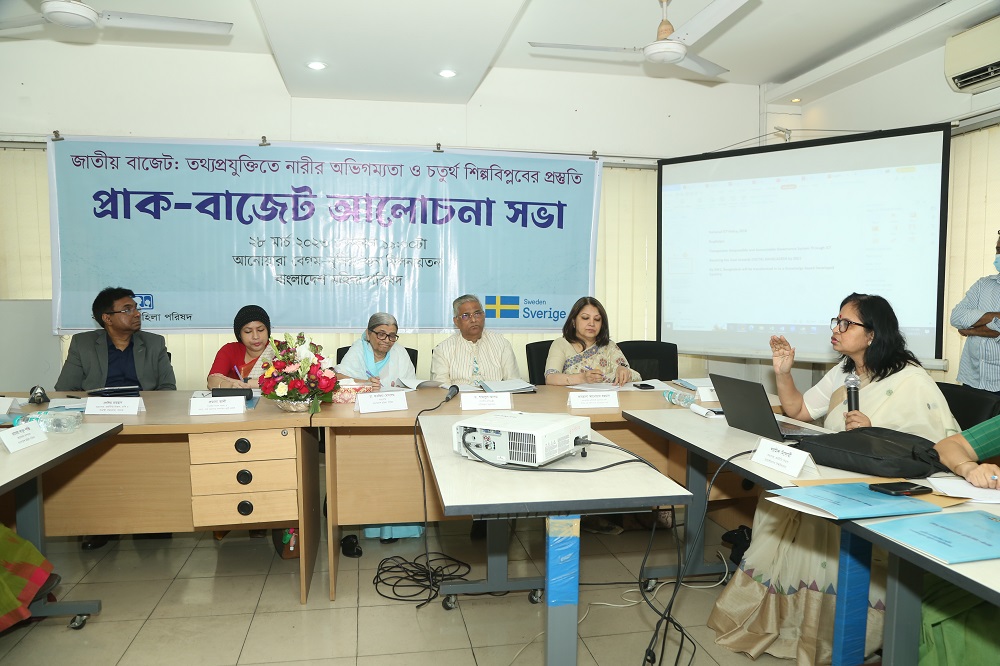
He said the government can take the initiative regarding the formation of the task force to accelerate development and ensure equality. However, the reality is that the given budget cannot be implemented due to various social and political perspectives. He emphasized the development of human resources for overall development.
Rumana Ali, honorable parliamentarian and member of the parliamentary standing committee, Ministry of Finance, commented that rural women had greatly improved their income through information technology. She emphasized the importance of continuing this progress.
Selim Rayhan, Executive Director of SANEM and Professor of the Economics Department, University of Dhaka, suggested a budget be allocated to ensure equal rights for men and women in technology in Bangladesh.
Farhana Anwara Rahman, former assistant secretary of BASIS and CEO and Chair of UY System Limited, suggested that changes should be made in the education system and that a separate allocation should be given in the budget for awareness. She also pointed out the need for research to find out why entrepreneurs do not have easy access to loan facilities.
Maleka Banu, General Secretary (BMP), said in the welcome speech, highlighted the importance of increasing women’s access to information technology by utilizing the skills of the community of women and innovating women-friendly information technology to make Bangladesh a sustainable middle-income country.
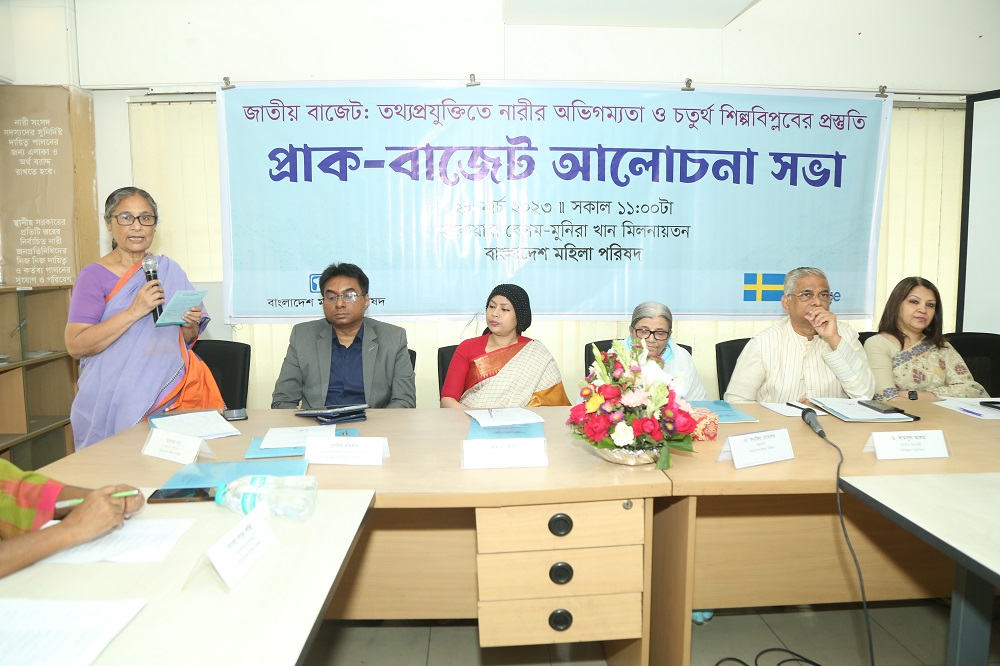
Dr. Fauzia Moslem said in the President’s speech that Women must be included if society is to remain stable. She urged for giving importance to women in determining any policy and said that the national budget is an economic document that is made for social development, which will be achieved by ensuring political liability. Women are claiming their rights through their power and qualification. An international promise is a big reason to strengthen their position. Equal rights should be given to women in property. Moreover, emphasis should be given to establishing good administration in light of the liberation sensation to make an equal society.
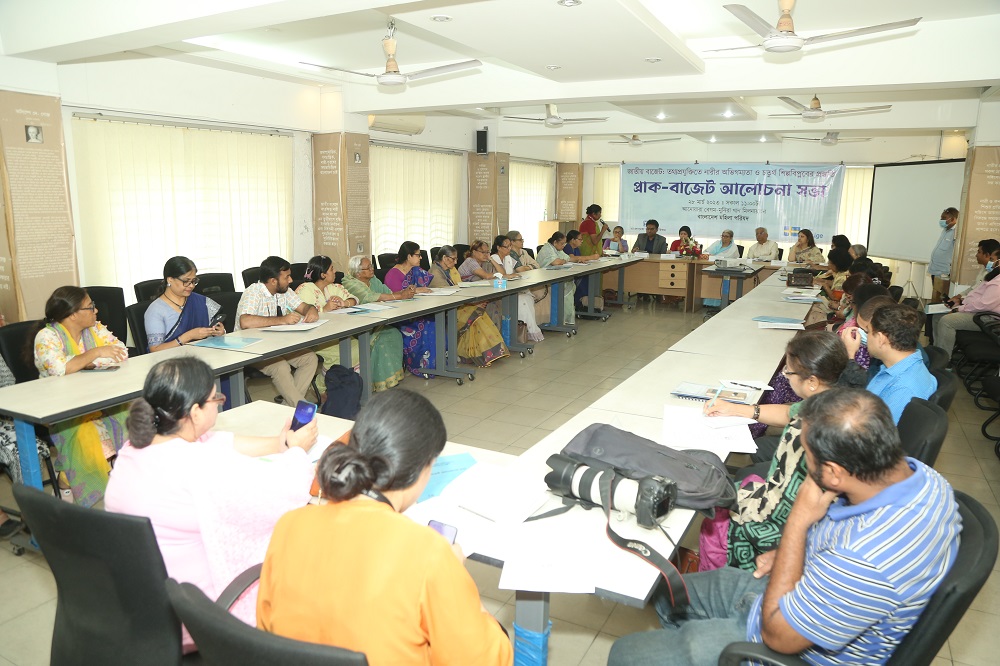
Rabeya Khatun Shanti, secretary of the movement, facilitated the program. This discussion meeting was attended by 100 people, including leaders of the organization’s central committee, media representatives, representatives from CAMPE, Bangladesh Nari Pragati Shangha, and officers of the organization.
Overall, the discussion meeting organized by BMP provided a platform for the experts to share their opinions, suggestions, and possible hindrances towards the upcoming budget regarding women’s participation in information technology.

